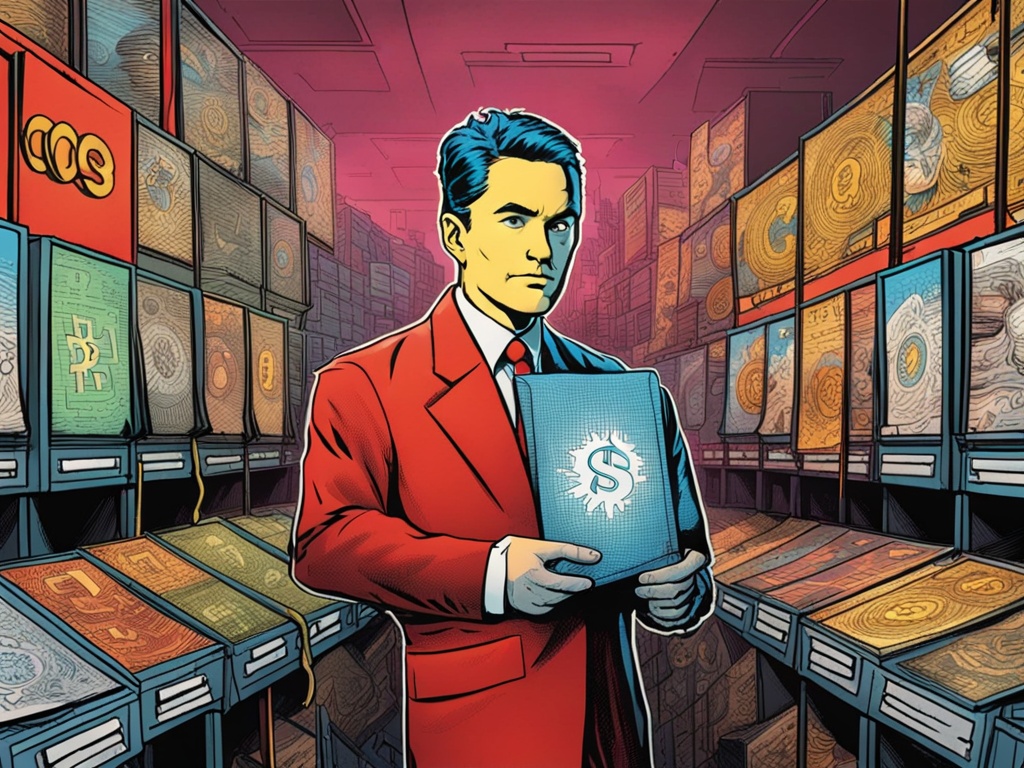Envisioning the Future of Crypto Trading: A Shift Towards Decentralization 🚀
Imagine a scenario where every significant financial establishment, along with countless individuals, actively engage in transactions on decentralized exchanges (DEXs). In such a reality, would traditional centralized exchanges (CEXs) even find a place? It seems likely that CEXs might become obsolete as all major crypto transactions shift towards on-chain solutions, diverging from the centralized server frameworks that dominate today. This transition embodies the foundational principles of Bitcoin and blockchain technology, rooted in the concept of decentralization.
The Current Landscape: Challenges with CEXs 🔍
Yet, here we find ourselves: the general user base demonstrates a remarkable ease with centralized exchanges, often overlooking a central truth: these exchanges operate largely outside the realm of blockchain technology. Their operations hinge on private systems rather than transparent on-chain processes, which runs contrary to the ethos of cryptocurrency.
Technically, any centralized exchange is susceptible to a catastrophic failure akin to the collapse of notable entities like FTX. While this may sound concerning, it’s a plausible scenario.
As of November 2024, despite sobering events such as the FTX fallout, almost 90% of crypto trading activity still occurs on CEXs. This results from users prioritizing convenience and familiarity, even in the face of inherent risks.
The centralized nature of these platforms places them at constant risk of experiencing another major event similar to the FTX collapse. On the other hand, decentralized finance (DeFi) presents a potential solution but is still facing significant hurdles.
DeFi: Potential and Pitfalls 📉
The stalling popularity of DeFi can be traced to various factors, including:
- Poor user experience: Many DEX interfaces can be complex and uninviting to new or less technically savvy users.
- Technological weaknesses: Ongoing instances of hacks and exploits continue to challenge the trustworthiness of DeFi platforms.
- Institutional hesitance: Many traditional financial institutions view DeFi as unregulated and unreliable.
In discussions within the industry, most acknowledge DEXs as outstanding, eliminating counterparty risks and promoting transparency and reliance on code over third-party intermediaries. However, in practice, financial institutions regard DeFi as untested and risky. They look for reliable avenues to engage with this new financial landscape.
Today’s financial institutions are designed to restrict interactions with unregulated entities. As a result, banks and asset managers tend to confine their dealings to CEXs due to a lack of alternatives, not out of affection for them.
The traditional financial systems have developed regulatory frameworks over centuries, allowing them to remain stable despite historical failures such as the 2008 financial crisis. In contrast, DeFi finds itself lacking the same regulatory structure, which keeps it on the sidelines. Rather than viewing regulation as a hurdle, it should be seen as an essential stepping stone for scaling this technology.
The Road Ahead: Embracing Regulation for DeFi Growth 📈
The absence of regulation in DeFi remains the primary reason institutions steer clear, and this avoidance is significant. Without the liquidity that comes from institutional engagement, DEXs struggle both with credibility and trading volume. Institutions play a crucial role in sustaining the financial markets, and without their involvement, DeFi struggles to flourish.
The introduction of GRVT’s DABA license represents a transformative moment, not only for DEXs but for the broader DeFi infrastructure. This is the first-ever licensed DEX, establishing a new standard for secure interaction between institutions and decentralized finance.
Thoughtfully implemented regulations can serve as a catalyst for the growth of DeFi; here’s how:
- Security and Compliance: Regulatory frameworks help create operational standards and mechanisms to prevent fraud and misconduct. Licensing enforces KYC (Know Your Customer) and AML (Anti-Money Laundering) protocols, addressing critical concerns for institutional investors.
- Institutional Trust: Trust is crucial in institutional finance. Regulated organizations provide reassurance to traditional financial sectors. For instance, the DABA license held by GRVT fosters a safe environment for banks and asset managers to explore DeFi practices without regulatory fears.
- Mitigating Counterparty Risks: Unlike CEXs, where confidence in the exchange’s management is paramount, GRVT utilizes blockchain for self-custodial settlements, significantly reducing the risks associated with mismanagement and potential fraud.
- Facilitating Mainstream Adoption: TradFi’s regulations have matured over time, which has allowed global financial markets to prosper; DeFi must follow suit to gain wider acceptance.
From the outset, GRVT committed to raising the bar for DEXs and the DeFi sector. The hiring of a General Counsel early in their journey reflects this commitment to compliance and regulatory adherence. Securing global recognition as the first licensed DEX represents much more than an accolade; it signifies a significant shift in how entities can interact with DeFi securely.
Key Features of GRVT: A New Standard in DeFi 🚀
Some of the standout features offered by GRVT include:
- Self-custody through Blockchain: Users maintain complete authority over their assets.
- On-chain Transparency: Every transaction is logged on the blockchain, fostering trust and accountability.
- Robust Security for Institutions: Enhanced protections echo those found in traditional finance.
If the barriers ot DeFi, including user experience, security, and regulatory clarity, are overcome, we can imagine a reality where institutions routinely conduct trades on DEXs. In this envisioned future, the term “CEXs” may fade, and “crypto exchanges” would intuitively refer to on-chain platforms.
This isn’t merely a hypothetical scenario; it is already unfolding with the advancements made by GRVT.
Final Thoughts: The Future is Bright for DeFi 🌟
GRVT has achieved a significant milestone by becoming the inaugural DEX to earn regulatory approval, having received the Class M Digital Asset Business License from the Bermuda Monetary Authority (BMA). This accomplishment establishes a new benchmark for decentralized finance, marking a crucial phase in its progress towards a more accountable and secure framework—thereby opening doors for broader institutional engagement in DeFi.
As GRVT works towards gaining a Full Class F license in Bermuda, it demonstrates an unwavering commitment to regulatory compliance and positioning itself to offer a wide range of digital asset services within a robust legal environment.
At the same time, GRVT is proactively collaborating with regulatory bodies worldwide to enhance its licensing initiatives. These efforts include adhering to the Markets in Crypto-Assets (MiCA) regulations in the European Union and forging partnerships with the Abu Dhabi Global Market (ADGM), recognized for its pioneering approach to digital asset governance.
As these initiatives progress, DeFi stands on the brink of a transformative period fueled by increased trust, security, and mainstream acceptance.





 By
By
 By
By


 By
By
 By
By